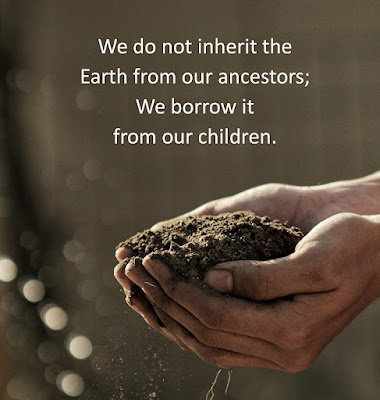I have to be up and out of the house early this morning to meet incoming electricians at the museum and so had less than the usual amount of time to devote to the search for wisdom.
But I did find this --- a noble thought worth sharing. It took me longer to find an illustration in which the quote was not attributed.
Sadly, there's no indication that Chief Seattle (ca. 1786-1866) ever said it --- he seems most frequently to get the credit; a nameless generic "Native American" comes in second. This probably has something to do with white folks attributing statements to indigenous people without investigating what indigenous people actually had to say.
So I did a little poking around and discovered a couple of things. Obviously, the sentiment here is as old as humanity and has been expressed in many ways.


No comments:
Post a Comment